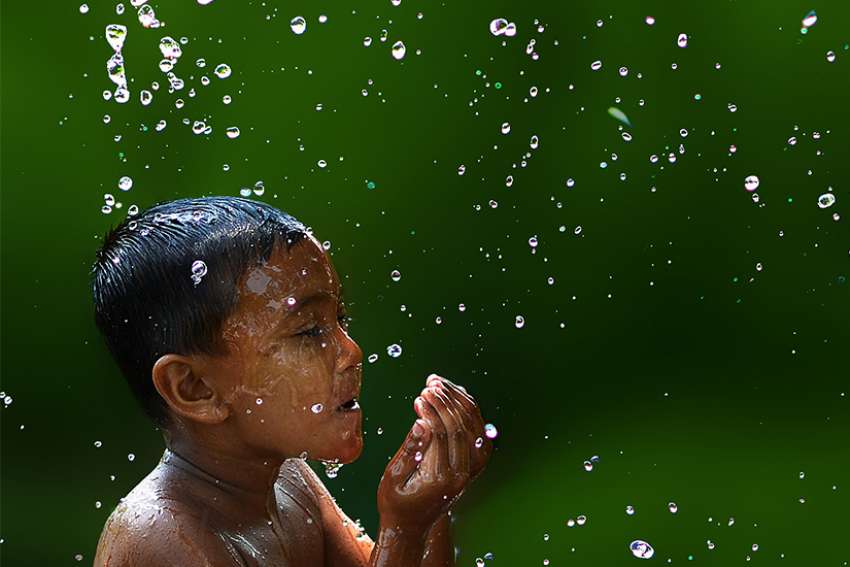Our abundance of water is what generates energy, irrigates fields, sustains industry, flushes waste, fills sinks, greens lawns and quenches thirst. Water is the source of life and a major reason life in Canada is so good.
We have so much water, in fact, it is difficult to hear alarm bells that herald a future in which the planet’s polluted oceans and lakes, its depleted underground reserves and wetlands, and its drying rivers and streams have become insufficient to sustain a global population predicted to reach almost 10 billion people by 2050.
Some experts suggest that within a generation water will eclipse oil as the resource most likely to trigger armed conflict, possibly even world war.
It was no surprise, therefore, when Pope Francis made water the central theme of his message earlier this month to mark the World Day of Prayer for the Care of Creation. Protecting water sources and natural basins is urgent and imperative, he said, adding that access to safe drinking water is a fundamental human right.
That right, however, is not enjoyed worldwide. More than 600 million people lack daily access to safe drinking water, according to the United Nations. That includes thousands of Canada’s First Nations peoples on about 90 reserves who currently live under boil-water advisories.
The Canadian situation is being improved by a $1.8 billion federal government initiative. But in the rest of the world, where 1,000 children a day die from illnesses linked to polluted water, the problem is getting worse.
According to the UN’s 2018 World Water Report, almost half the world’s population — mainly in Africa, Asia and Latin America — experience water scarcity. That’s 3.6 billion people today, projected to exceed five billion within 30 years. By then, the world’s demand for safe water will have grown by 30 per cent during years when the planet’s clean water supply has sharply declined due to climate change and pollution.
The solution? Pope Francis put it this way: “We need to pray as if everything depended on God’s providence — and work as if everything depended on us.”
In other words, start with prayer but also practice conservation, encourage others to do likewise and urge politicians to make water a priority by enacting polices that safeguard the environment, conserve resources and penalize polluters. It also means opposing campaigns from companies around the globe intent on privatizing water resources and making water a for-profit commodity.
“Our right to water is also a duty to water,” the Pope has said. It’s a two-way street. We have an obligation to become water conservationists “for the good of mankind.”


